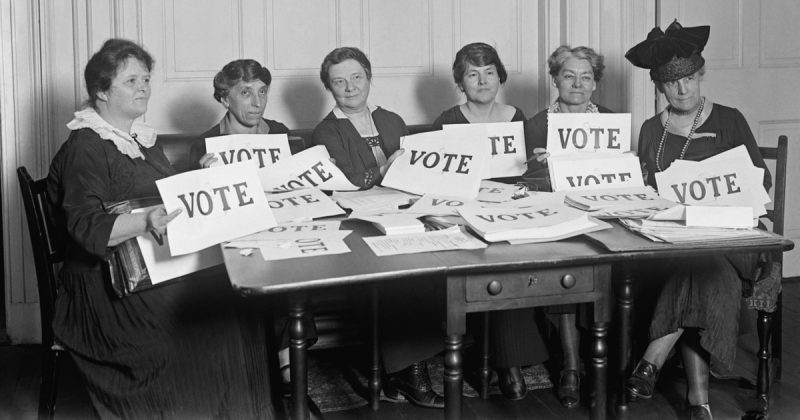
Shutterstock by Everett Collection
If the US Voted With Blockchain, We’d Already Know the Election Winner
A blockchain voting system would have revealed the next U.S. president within just minutes and leave no room for fraud allegations.
Major commentators in the crypto space reminded that the U.S. election would have already been done and dusted if the country had used blockchain technology to count votes.
Blockchain Voting: Quick and Secure Elections
Binance CEO Changpeng Zhao pointed out that the election results would not only be tamper-proof but nearly instantaneous as well.
If there is a blockchain based mobile voting App (with proper KYC of course), we won't have to wait for results, or have any questions on its validity. Privacy can be protected using a number of encryption mechanisms.
— CZ 🔶 BNB (@cz_binance) November 5, 2020
Ethereum co-founder Vitalik Buterin agreed, although cautioned that such a system would come with significant “technical challenges.”
Many such systems are already in development. Changpeng’s comment drew a response from Vocdoni, a GDPR-compliant blockchain voting system built on decentralized technology.
Vocdoni’s community lead Ferran Reyes spoke to Crypto Briefing, explaining that the key was to build a blockchain solution on decentralized infrastructure.
“With a universally verifiable voting system anyone can audit the code and the voting processes,” said Reyes.
Unlike the mail-in ballot system drawing controversy in the U.S., anyone can visit the Vocdoni blockchain explorer to count votes and verify the data’s accuracy.
Tim Goggin, CEO of the Horizon State blockchain voting platform, told Crypto Briefing that a secure blockchain voting system would have eliminated the issues casting doubt on the election. He said:
“Those who voted by mail do not know if their vote was received, lost, was considered invalid or if it was recorded and counted correctly. Many are raising questions over whether late votes should be included – should the polling day deadline apply to when they cast their vote or when it was received by their state?”
The Challenges of Blockchain Voting
Of course, adoption is a major challenge to the new technology. Reyes explains that “getting people to trust digital voting” is the first step.
He added that countries like Switzerland and Estonia are have already integrated blockchain technology into aspects of regional voting and healthcare systems. Blockchain voting was also used in the 2018 national election for Sierra Leone.
Accessibility is another issue; not everyone will have a smartphone or blockchain-enabled device. It would still be necessary to have the option for people to vote in person as normal.
Finally, identity verification is incredibly complicated.
“Integration with Identity systems or authentication systems is crucial for avoiding double-voting, sybil-attacks, and other kinds of fraud,” said Reyes.
Once securely implemented, the technology could be a major step up for all election processes. Users would be able to change their votes as many times as they want before the final tally, preventing voter coercion.
Goggin explained that “the system lets voters verify that their ballot was recorded and counted correctly on the blockchain, and then tally or audit all the votes themselves.”
While Changpeng Zhao’s claims of implementation by the next Presidential election are likely premature, the events playing out in the U.S. may be a catalyst for more serious development.

 Earn with Nexo
Earn with Nexo